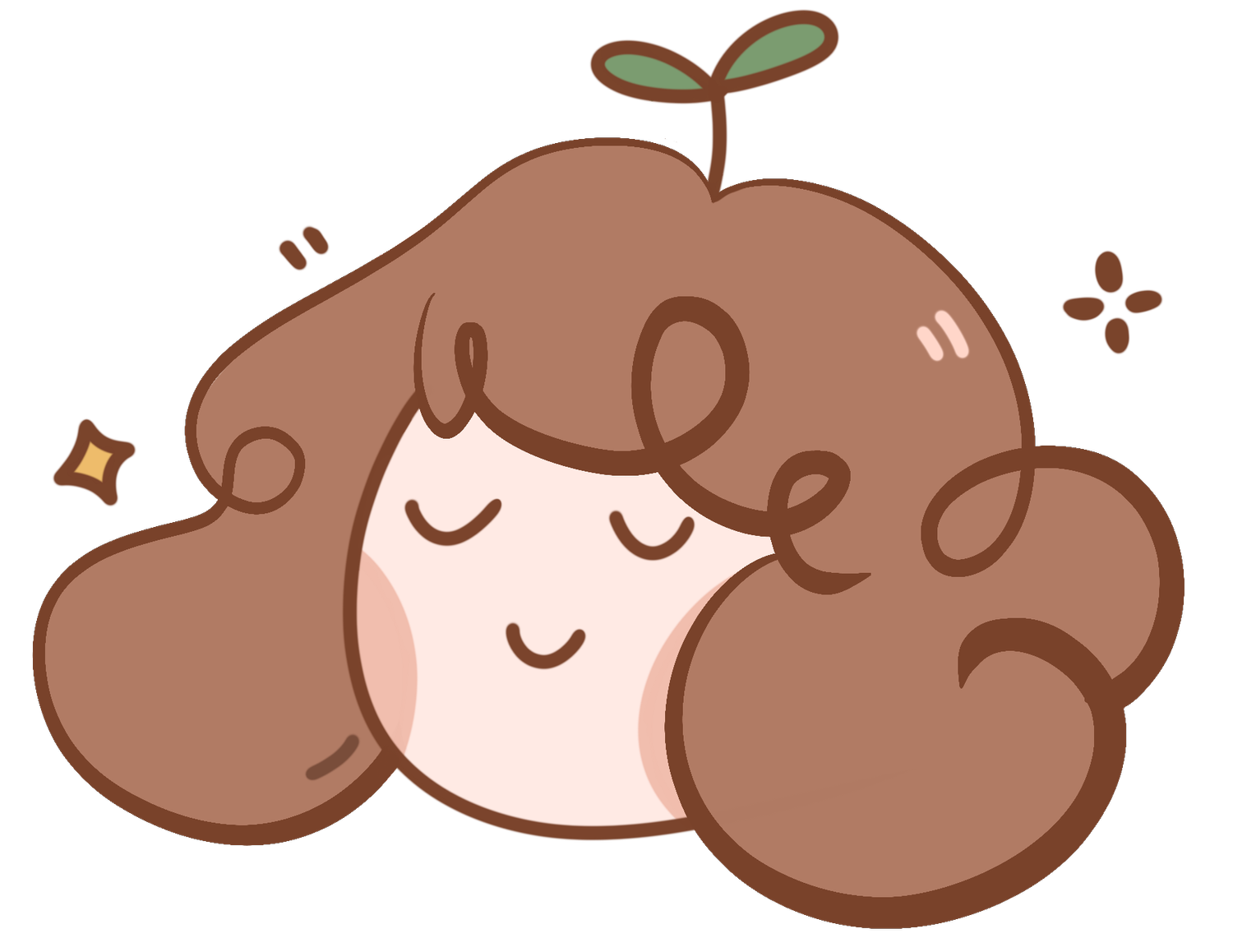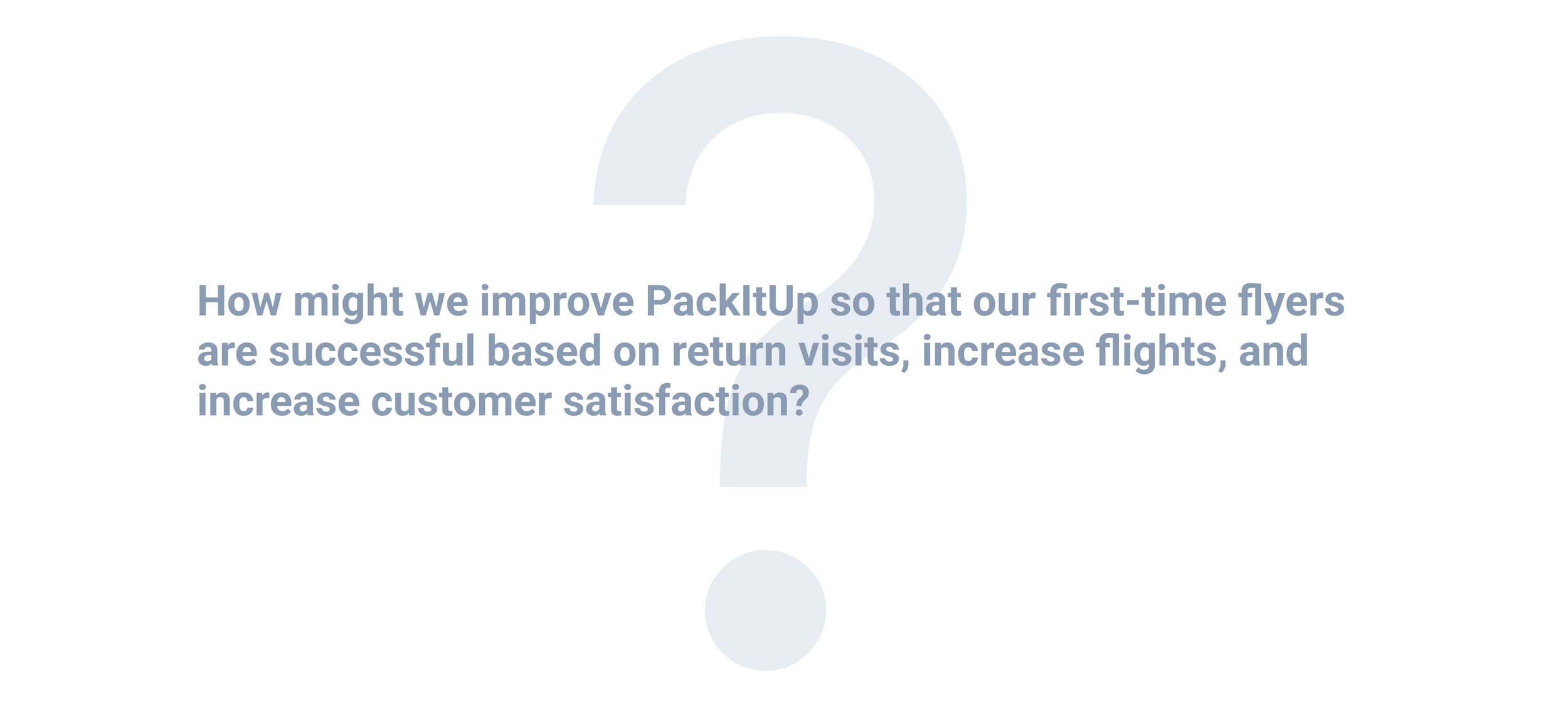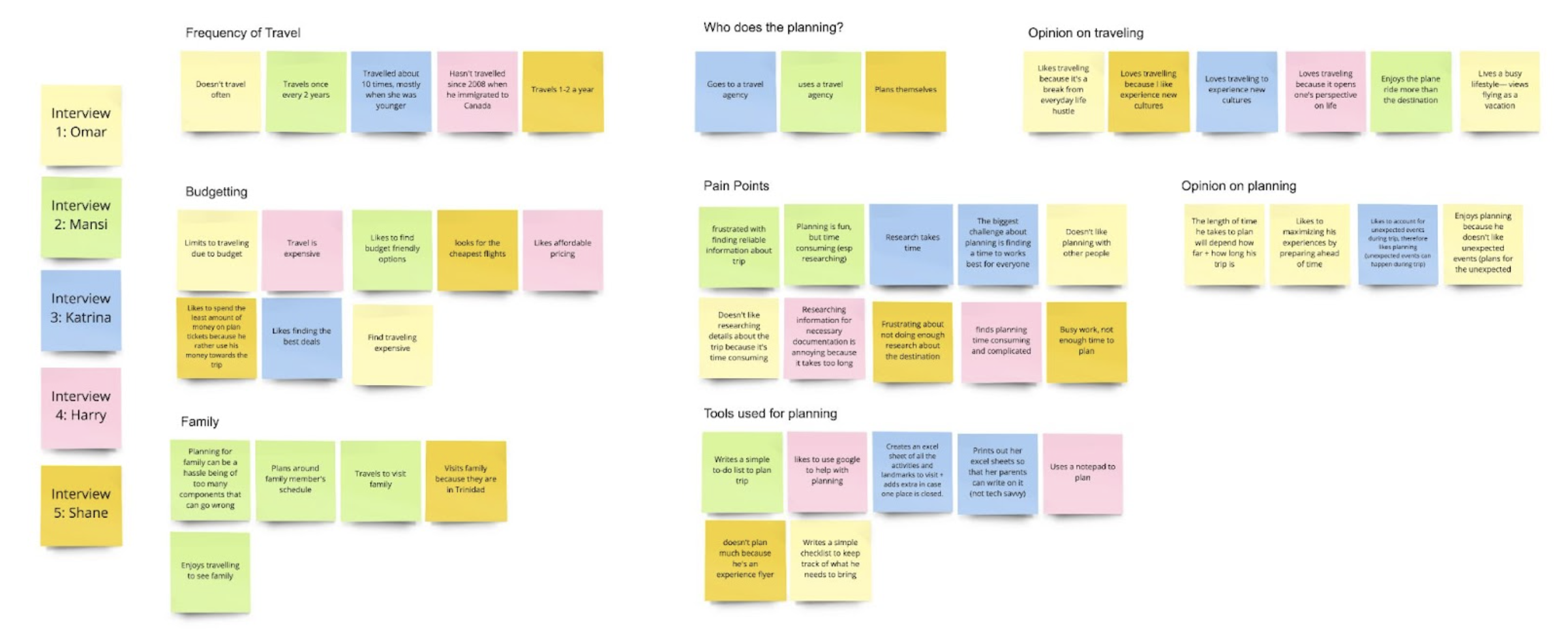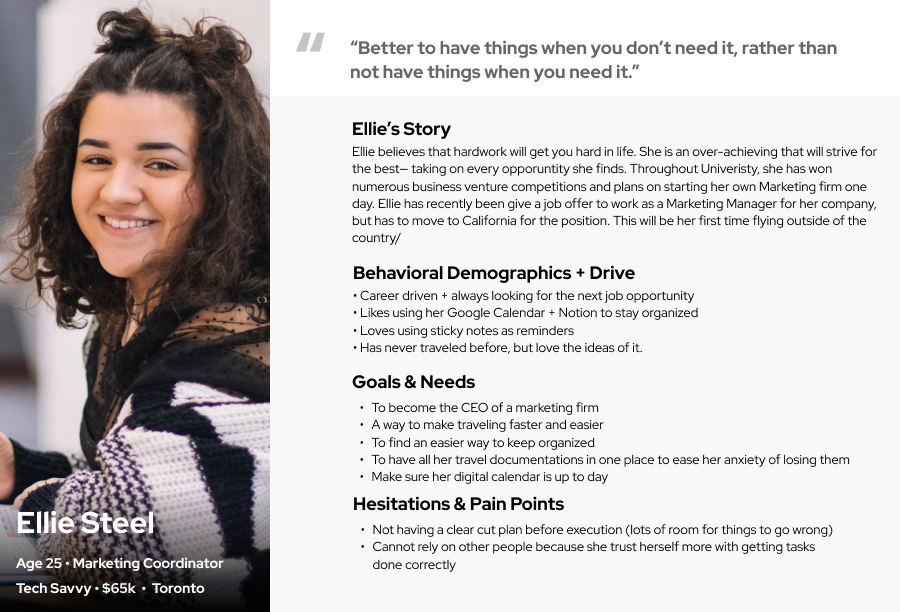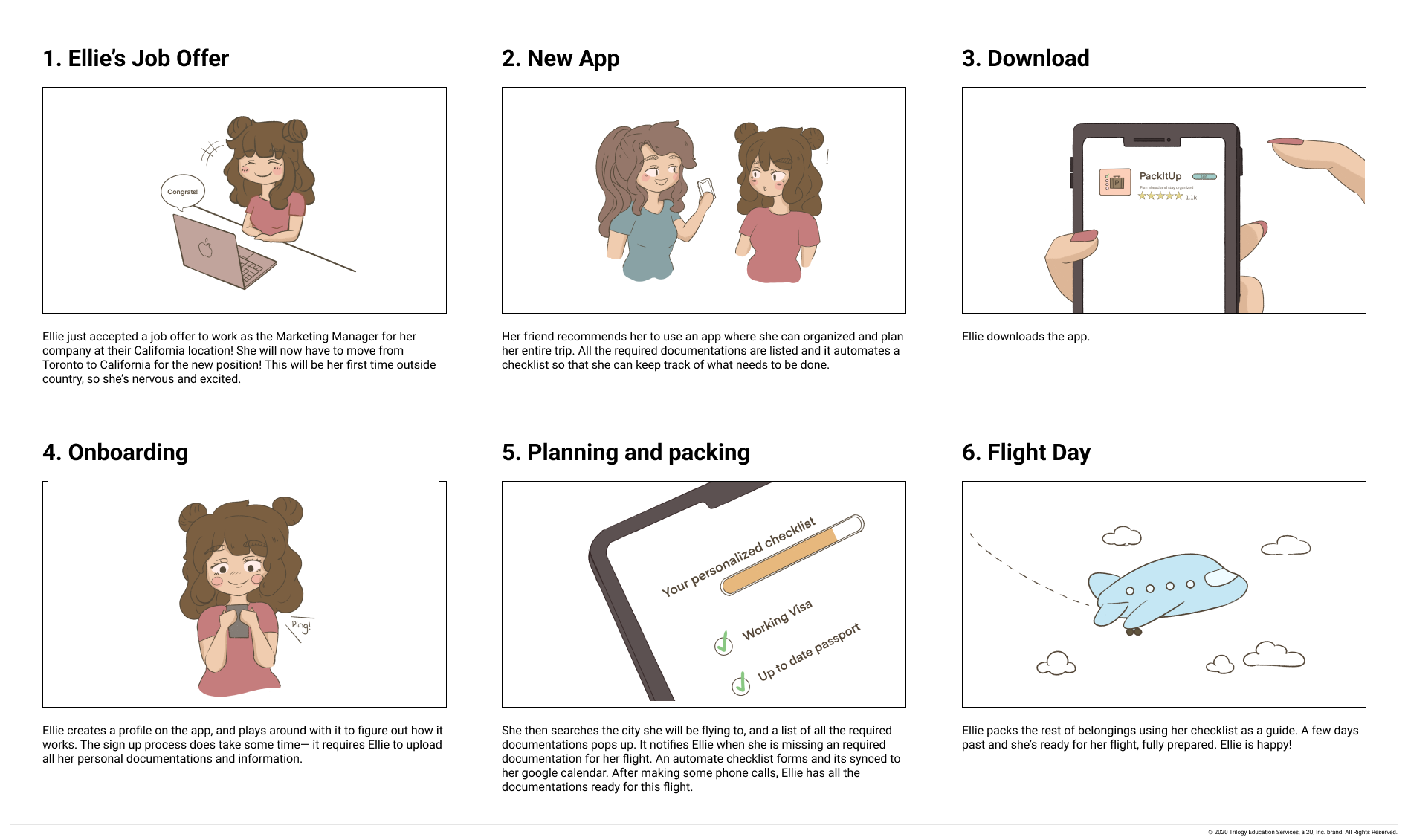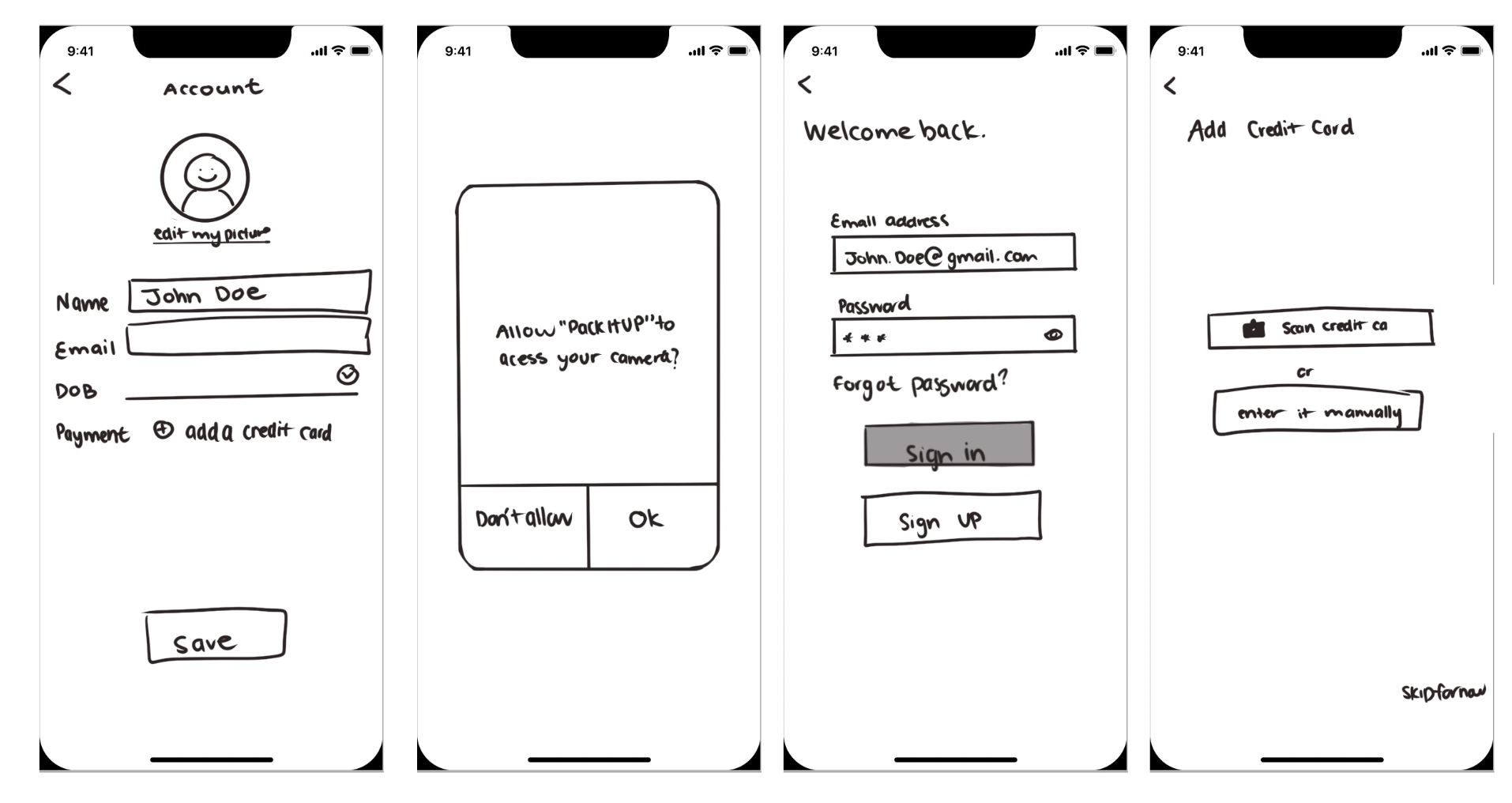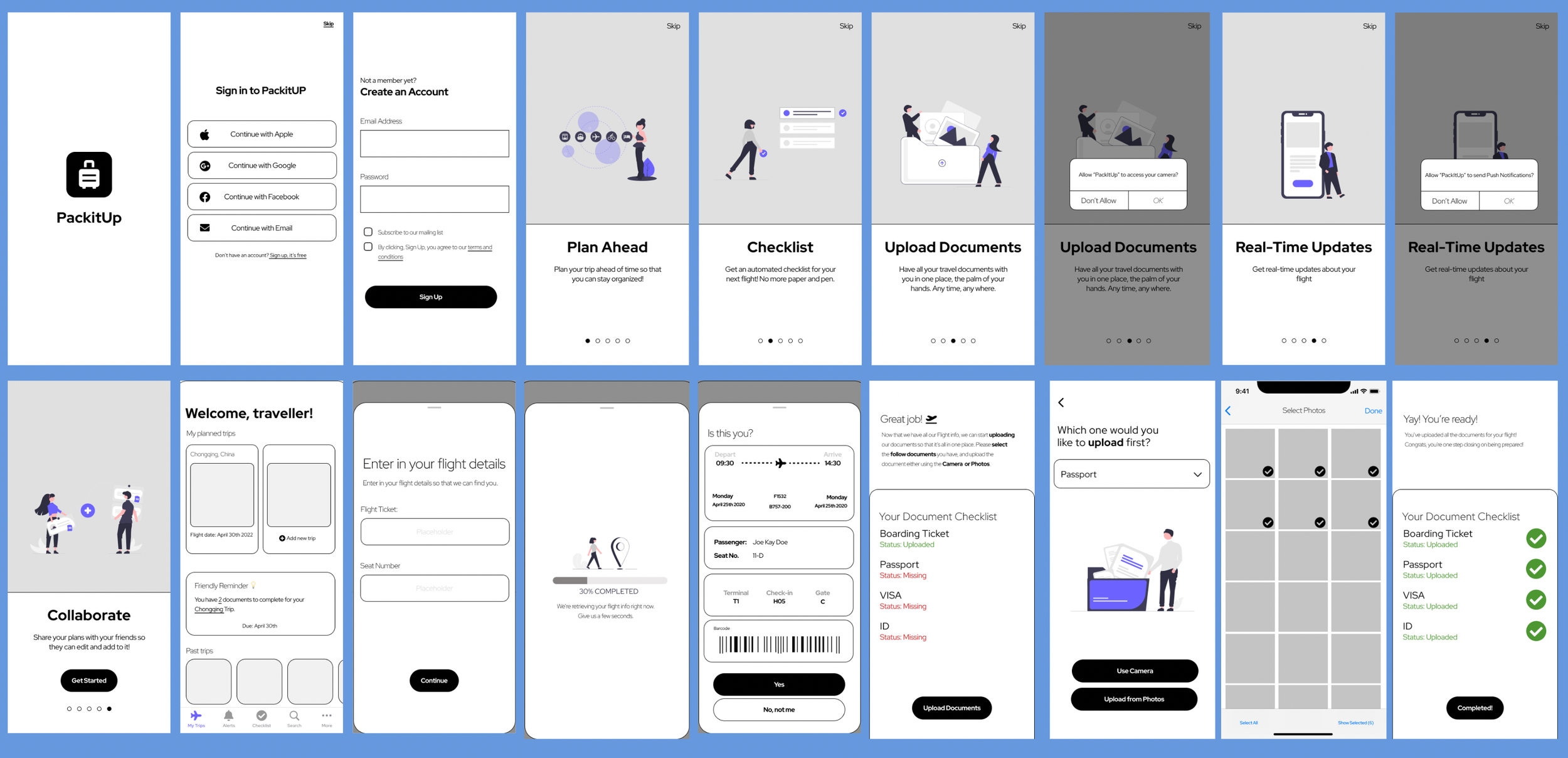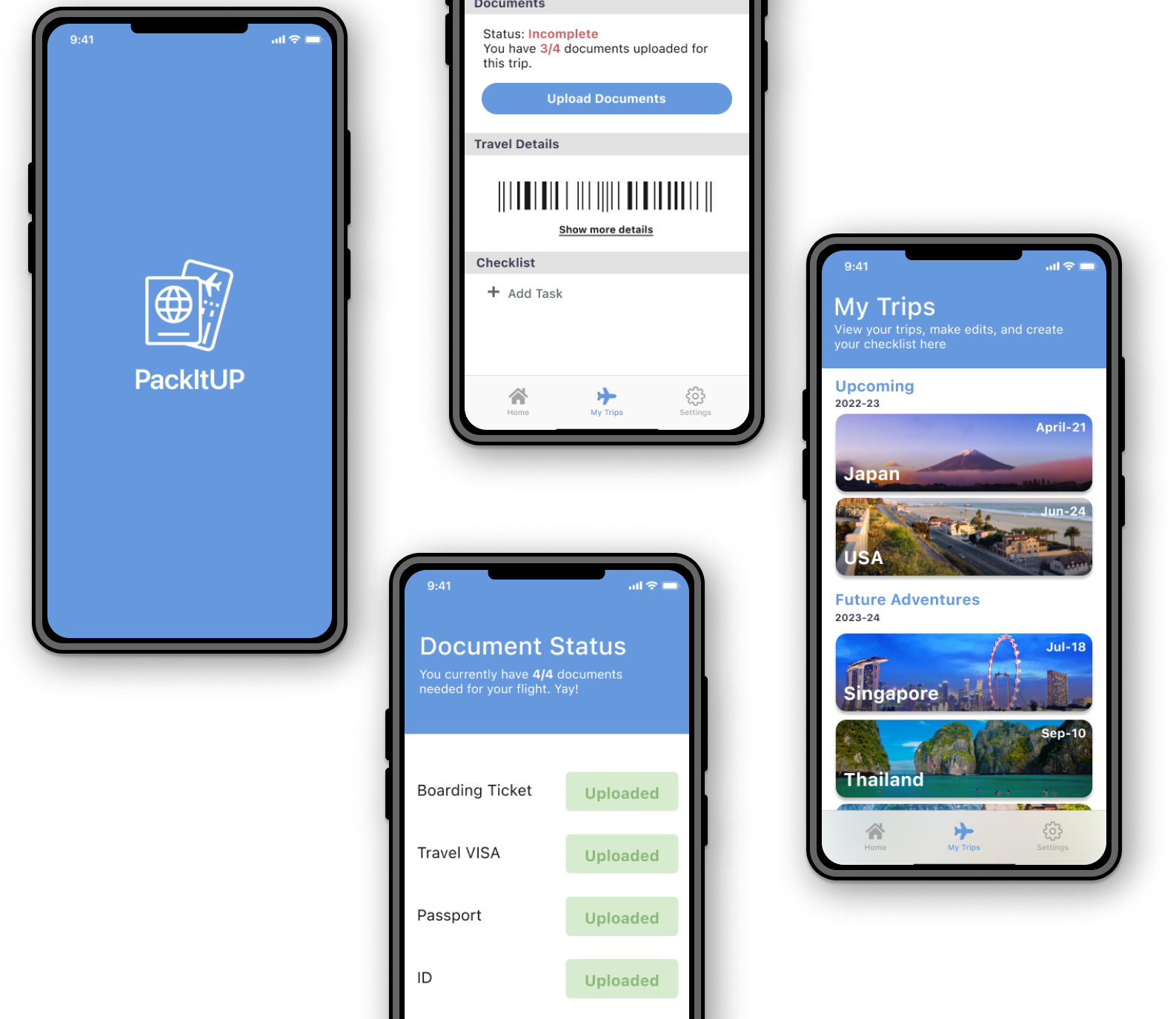PackitUP App
MOBILE APP • CASE STUDY
INTRODUCTION
A few months ago, my friend was asking for advice on traveling to Korea as she was planning her trip there. She has never flown overseas before and was unsure of where to start.
This got me thinking “for a first-time flyer, where should they start?” The internet is a vast place of information overload which can be daunting for first-time flyers.
MY ROLE
User research, synthesize, product design, and style guide.
THE TEAM
Solo project
TIMELINE
March 2022 - Aprill 2022
The Problem
Flying can be a daunting task, especially for first-time flyers. People can get stressed out and anxious during the planning stages because of the fear of forgetting important documentation/paperwork.
My Solution
PackItUP was designed to streamline the planning process for flyers. We have observed that users spend too much time planning, which is an inefficient use of time.
Research
User research
Starting off with user research, I began to interview individuals who frequently traveled on topics related to their planning process. From those interviews, I discovered that many individuals are annoyed with planning because of the amount of work allocated towards collecting the necessary documentation for each flight. It’s a time-consuming task to do.
“When it comes to planning, I have to make sure my family and I have all our documentation ready. We’re a big family, so there’s a lot to keep track of… It’s easy to forget things when you have so much to keep track of.”
“I got to a travel agency so that I don’t have to research myself. I don’t have time for it.”
User insight
After taking a look at all the data I collected from my interviews, I created an affinity diagram. Here’s what I found: first-time flyers need to feel more prepared and organized when planning for their flights because their anxiety about forgetting important things can lead to an unsatisfactory flight experience. Especially, the documentation.
Persona
Storyboard
Next, I came up with what the typical user journey would look like as they try to plan a flight for the first time. This describes her experience, allowing me to understand the larger context in which my app will be used.
The results from user research/interviews helped me come up with my user persona.
Ideation
User flowchart
Up until now, I didn’t know how my app was going to function or how it will work. So, to figure out the user path, I sketched it out on paper and then rendered it digitally. I continue to iterate this flow as a result of user testing.
Sketches:
The first step in ideation was to sketch out my ideas on paper. Sketches help me visualize what my app and its components will look like.
Wireframes
Wireframing helped me visualize how my app was going to function and flow. Because this is a lo-fi wireframe, any changes were low risk and quick to make.
Iterations
I made many changes to the user flow with every user testing conducted. Here are some of the changes I made based on user testing:
Simplified navigation bar (removing irrelevant categories)
Removed irrelevant onboarding screens
Moved the “checklist” tab
Rearranged navigation bar + user flow
Changed labels headings
Simplified Login pages
Final design
Link to slide deck
Prototype
Reflection
Importance of research
Whether it be doing market research or user research, I needed to improve my research skills. I definitely didn’t do a well enough job— confirmation bias is my biggest weakness. I need to learn to draw conclusions from data, rather than look for info that confirms my thoughts.
Keep it simple
I dived into this project and wanted to create a product that was “never-before-seen.” But, I learnt later on that might be too ambitious of a task to reinvent the wheel. Considering this was my first project, I should have stuck with things that work in order to learn the fundamentals before taking on more challenging tasks.
The bigger picture
I have a tendency to get tunnel vision too early on in a project— prompting me to focus way too much time on small details like design. I definitely could have used my time more efficiently especially during the design phase, if I had focused more on the bigger picture.
I need to come to terms that designs will change, so spending hours on low-fi wireframes isn’t the best use of my time
